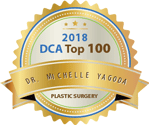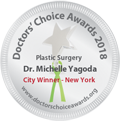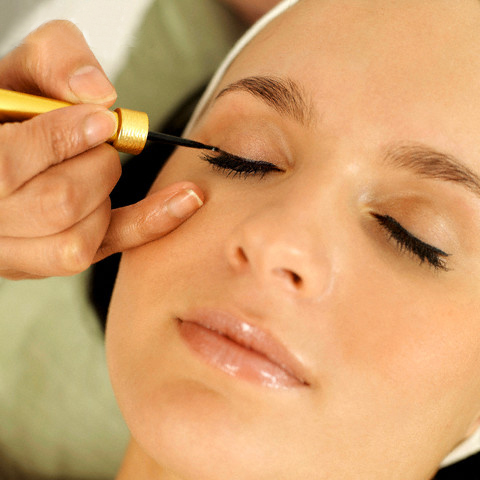In the past, if you wanted longer, fuller lashes, the only way to get them was to fake it—either through mascara or false eyelahes. But now, a whole new arena of products promises to give you the lashes you’ve always wanted, beyond temporary cosmetic enhancements. Whether a topical prescription drug like Latisse, or a more accessible “lash conditioner” like RevitaLash, Marini Lash, RapidLash, and Talika, the market now offers several promising choices for women seeking to enhance their own natural lashes.
With the promise of longer, thicker, darker lashes in reach, should you entertain the notion of a future without mascara? Well, before you toss the tube, there are some important side effects that you may want to know about, especially if you have blue or hazel eyes! And to make matters more complicated, these side effects are linked to an ingredient that is common not only to the prescription drug, but also to some over-the-counter alternatives.
Eyelash lengthening?
Many years ago, the drug company Allergan patented a drug to treat glaucoma by reducing elevated eye pressure. Many users noticed the unanticipated but welcome side effects of darker, longer, thicker eyelashes when using this prostaglandin analogue named bimatoprost.
How the craze began
An entrepreneur and cosmetics formulator, Jan Marini, incorporated this active pharmaceutical ingredient, bimatoprost, into a cosmetic and sold it commercially. It became successful and spawned a few rival products that also contained prostaglandin analogues. Eventually, Allergan became aware of Jan’s product and sued her for breaching their patent. Ultimately, Jan lost her ability to sell her effective product since she made a medical claim on a cosmetic—namely that usage would lead to eyelash hair growth. The FDA reprimanded her and seized her product. Since the competitors did not make such medical claims, their businesses went unscathed.
An FDA Loophole?
Many lash-lengthening products were quite effective and their founders enjoyed great prosperity as a result of what some believe may be a loophole in the FDA regulations. Through this loophole, active pharmaceutical ingredients could seemingly be included in products labeled as cosmetics (as long as no medical claims were made). Apparently, the FDA did not (and still does not) regulate the cosmetic industry and therefore, no one was deemed responsible for educating consumers about possible side effects.
The side effects you need to know about
Since prostaglandin analogues are drugs, they have real side effects—whether they’re in a prescription drug or in an over-the-counter cosmetic. Usage without knowledge can be a recipe for danger! Prostaglandin analogues lower eye pressure and as such, they are intended for use only when high pressure exists. If used in eyes with normal pressure, the pressure may also be lowered, and since ophthalmologists are uncertain of the potential dangers of prolonged low eye pressure… user beware! Additional side effects may include the following: eyelashes that curl unevenly, partially, and unpredictably; skin above the lash line that darkens perhaps irregularly, temporarily, or even permanently; and possible permanent pigmentation of the iris (the colored part of the eye) if product enters the eye.
The competition
Rapidlash, Dermalash, and Peter Thomas Roth’s Lashes-to-Die-For claim to contain prostaglandin analogs, as does Revitalash, which was founded by an ophthalmologist attempting to treat his wife’s hair loss after chemotherapy used to treat her breast cancer. A representative from Revitalash has stated that this product was formulated so as not to penetrate the cornea. (Since no studies were provided in support of that claim, the veracity of that statement cannot be confirmed.)
Jan Marini’s newly reformulated Marini Lash, and TalikaLipocils, formulated by a French doctor, are listed as lash conditioners. They report all of the benefits of the prostaglandin analogues but claim that the active ingredient is a polypeptide. Since polypeptides may be the building blocks for prostaglandins, it may just be clever labeling – and without clinical studies, buyer beware!
A note on pricing:
The price per month does not vary greatly among products, but the quantity does. In general, if the price is $125-$160, the product lasts 5-6 months. If the product is $40-$60, it generally lasts 1-2 months. As with all things in life, you get what you pay for!
The take-home message
Remember that despite all of these potential side effects, the FDA has approved Latisse as a safe and effective lash lengthening treatment. Since a prescription is required, it is likely that the potential user will, during the physician’s consultation, learn about the possible side effects mentioned above as well as more common ones like burning sensation, tearing, and irritation of the skin. However, in choosing your own product, educate yourself and use caution!
Which one of these products is best? As with many questions in aesthetic medicine, the answer depends on your goals and how much weight you give to each product’s potential cost, advantages, risks, and drawbacks. Because Dr. Yagoda believes in offering a full spectrum of choices for her patients, we are proud to offer all of these products in our New York City (NYC) / Manhattan office as well as the expertise to help you select the one that’s best for you.



































